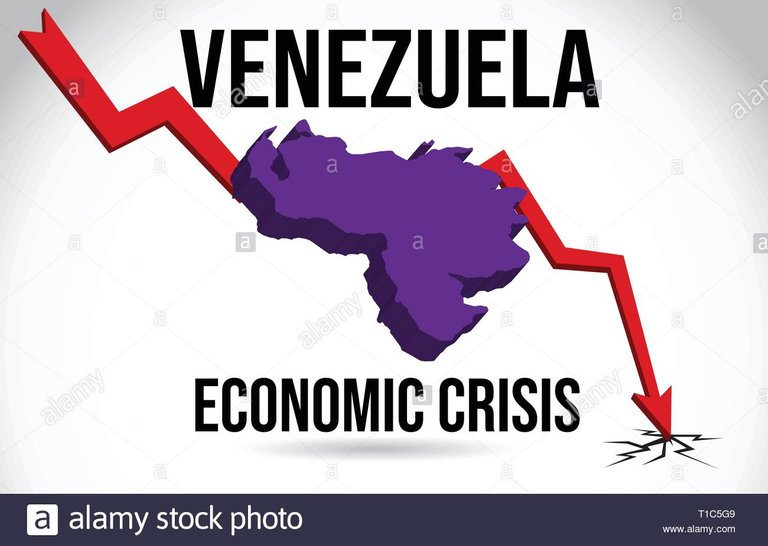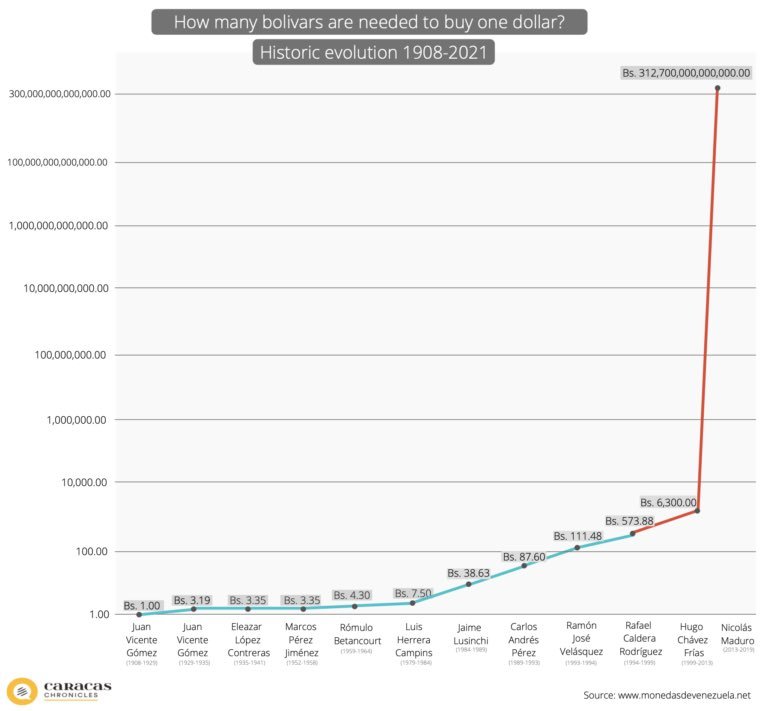Greetings Community!

To make a long story short, I will summarize how a Venezuelan lives the economic crisis. We were a country that enjoyed an economic and inflationary stability envied by its Latin American neighbors. The Venezuelan economy in the 19th century was completely agricultural.
It can be said that Venezuela was the king of exports; the country's economy was sustained by the sale of these products abroad. More than eighty percent (80%) of the country's income came from agriculture.
At the end of 1918, oil appeared for the first time in Venezuela's export statistics with an annual production of 21,194 metric tons. Oil exports skyrocketed from 1.9% to 91.2% between 1920 and 1935 . This became the First Oil Boom in Venezuelan history.
In a few years, oil prices went from historical records, close to 150 dollars per barrel, to a low of 45 dollars. With the economic recession of 2007 and the drastic drop in crude oil prices, the bonanza situation turned into a liquidity crisis, the State's expenditures were increasingly higher than its revenues.
Poor resource planning and bad management by the Government were evidenced by the lack of provisions in the budgets for these possible drops. The fall in oil exports has been partially offset by the exports of other minerals, especially gold, which has been exploited with enormous environmental costs.
Currently Venezuelans do not know how much money comes in, nor how much goes out, we have no budget to visualize, the only thing we know is that the minimum salary in May of this year was set at 10 million bolivars per month, which is equivalent to three and a half dollars, the lowest in all of Latin America.
With that figure, one can barely buy three kilograms of precooked corn flour or rice. The Government of Nicolás Maduro has increased the minimum wage at least 20 times since he came to power in 2013.
How many bolivars are needed to buy one dollar?1908 to 1921
However, the deep economic crisis Venezuela is going through has made this indicator lose relevance and its purchasing power is almost zero.
Hyperinflation has demolished the purchasing power of Venezuelans earning minimum wage. As a result, citizens must work double shifts or look for additional jobs to make ends meet, some depend on remittances sent by relatives who have emigrated to other countries overwhelmed by the crisis.
Others depend on the Patria System bonds given by the government that do not reach two dollars and CLAP bags that arrive from time to time with low quality food and lack of proteins.
In addition to this, the coronavirus pandemic has also aggravated the problem of hunger.
What to expect to get out of this, many agree that the solution goes from new economic policies of the current government to a change of this one.
But while the solution is being sought, how many will die of hunger, for not having the means to buy medicine... The long term consequences of the current nutritional state of Venezuela "may be irreversible".
Venezuela is not well. No.
People do not believe in anything, and some believe in nobody. We are surviving. We do not have the slightest quality of life. We are content with little. Some put their hopes in other countries. They leave. Others resist with stubborn hope.

The rewards earned on this comment will go directly to the person sharing the post on Twitter as long as they are registered with @poshtoken. Sign up at https://hiveposh.com.
To register, thank you!
The curators give the percentage so fast that it seems like an answering machine.